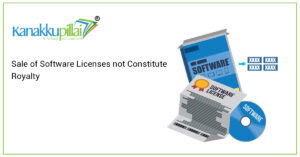![]()
Corporate FDs vs Bank FDs
Fixed Deposits (FDs) are a popular investment avenue for individuals seeking stable returns. Corporate FDs and Bank FDs stand out among the various types of FDs available, each with its unique features and risks. This comprehensive guide will delve into the key distinctions between Corporate and Bank FDs, helping you make informed investment decisions.
1. Definition and Overview
Corporate FDs: Corporate Fixed Deposits are investment instruments non-banking financial companies (NBFCs) and corporations offer. Investors deposit a lump sum amount for a fixed tenure, and in return, they receive fixed interest payments periodically.
Bank FDs: Bank Fixed Deposits, on the other hand, are offered by banks. Investors deposit a certain sum for a predefined period, and the bank pays interest on the principal amount at regular intervals.
2. Safety and Credibility
Corporate FDs: One of the primary concerns with Corporate FDs is the risk associated with the issuing entity. Unlike banks, corporations and NBFCs are not covered by the Deposit Insurance and Credit Guarantee Corporation (DICGC). Hence, there is a higher risk of default, and investors may lose their principal amount in case of financial distress.
Bank FDs: Bank FDs, being offered by banks, are considered relatively safer. The DICGC provides insurance up to Rs. 5 lakhs per depositor per bank, ensuring that the investor’s principal amount is protected up to the insured limit even if the bank faces financial troubles.
3. Interest Rates
Corporate FDs: Corporate FDs often offer higher interest rates than Bank FDs. The reason behind this is the increased risk involved. To attract investors, companies provide a premium in the form of higher interest rates. However, this higher return comes with a corresponding increase in risk.
Bank FDs: Bank FDs generally offer lower interest rates than Corporate FDs. This is because banks are considered more stable and secure, and investors are willing to accept lower returns in exchange for safety.
4. Credit Ratings
Corporate FDs: Credit ratings are crucial in assessing the risk associated with Corporate FDs. Before investing, it is essential to check the credit rating of the company offering the FD. Higher credit ratings indicate lower default risk. Rating agencies like CRISIL, ICRA, and CARE assess the creditworthiness of corporations.
Bank FDs: Banks are subject to credit ratings, which reflect their financial stability. Investors can refer to credit rating agencies such as Moody’s, S&P, and Fitch to evaluate the creditworthiness of a bank. Generally, established banks have higher credit ratings, ensuring a safer investment.
5. Liquidity
Corporate FDs: Corporate FDs often come with lower liquidity than Bank FDs. Premature withdrawal or liquidity before maturity may result in penalties, reducing overall returns. Investors should carefully consider their liquidity needs before opting for Corporate FDs.
Bank FDs: Bank FDs, in contrast, offer better liquidity. Most banks provide the option of premature withdrawal, albeit with a penalty. This flexibility can be crucial for investors who may need access to their funds in case of emergencies.
6. Tax Implications
Corporate FDs: Interest earned from Corporate FDs is taxable per the investor’s income tax slab. Investors need to include the interest income in their annual income tax returns.
Bank FDs: Similar to Corporate FDs, the interest earned from Bank FDs is taxable. However, banks deduct TDS (Tax Deducted at Source) on the interest earned, making the tax process more straightforward for investors.
7. Tenure Options
Corporate FDs: Corporate FDs often come with flexible tenure options, allowing investors to choose a duration that aligns with their financial goals. Tenures can range from a few months to several years, providing versatility in investment planning.
Bank FDs: Bank FDs also offer various tenure options, allowing investors to select a period that suits their needs. The tenure can typically vary from a few days to a decade or more, providing options for both short-term and long-term investors.
8. Documentation and Process
Corporate FDs: Investing in Corporate FDs may involve a more extensive documentation process than Bank FDs. Investors may be required to submit additional documents and complete a more detailed application process.
Bank FDs: Opening a Bank FD is usually a more straightforward process. Banks have streamlined documentation procedures, and investors can often open FDs online or visit a branch to complete the necessary formalities.
Conclusion
In conclusion, the choice between Corporate FDs and Bank FDs depends on individual risk tolerance, financial goals, and preferences. Corporate FDs offer higher returns but come with increased risk, while Bank FDs provide a safer haven with relatively lower returns. Before making a decision, investors should carefully evaluate their risk appetite, conduct thorough research, and, if necessary, seek professional financial advice to ensure their investment aligns with their overall financial strategy.





